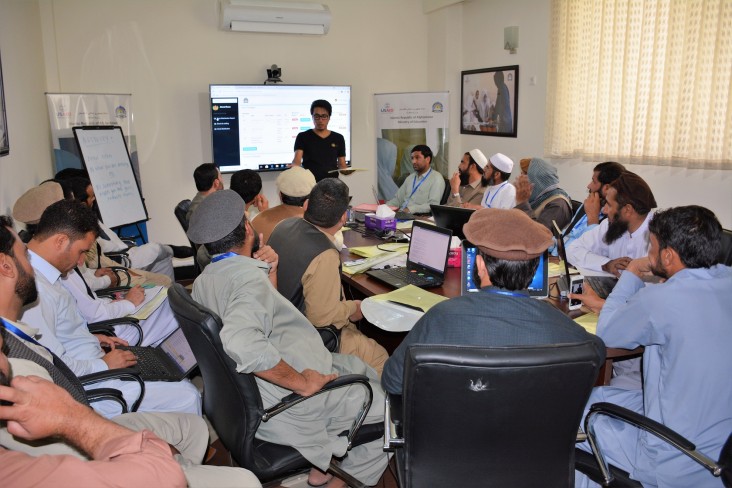Speeches Shim

Security risks complicate materials delivery in a fragile state such as Afghanistan, and the Ministry of Education’s ability to effectively track the process was inhibited by an outdated monitoring system. The ministry was using a complex, paper-based system that created opportunities for corruption and delayed delivery of textbooks to students.
The USAID Afghan Children Read project conducted a rapid assessment of the ministry’s distribution system. Based on the findings, the project developed an Online Textbook Inventory Management System (OTIMS) as an efficient, sustainable and cost-effective replacement for the old system.
OTIMS clearly defines work flows for sending, receiving, and keeping records of textbooks at all levels, from the central ministry and textbook vendors down to provinces, districts, schools and students. The system quickly generates a report of books that have gone missing at any step in the distribution process.
“The OTIMS system is one of the most advanced systems for transparency and accountability and can eliminate donor and implementer dissatisfaction,” said Mr. Mohammadullah Hamediy, Print Production & Planning Officer for the ministry.
Afghan Children Read and the ministry put OTIMS to the test while distributing 242,534 teaching and learning materials in Nangarhar and Laghman provinces for the start of the 1397 (2018) academic year. The project trained staff from provincial and district education departments to test every part of the system, including tracking and monitoring distribution and generating reports to ensure every student received a book.
The project worked with the ministry to refine OTIMS based on the findings of the field test and prepare it for national use. The ministry now is preparing to use the system to track and monitor textbook distribution across the country for the 1398 (2019) academic year. The project and ministry are working together to prepare master trainers and provincial- and district-level users before distribution begins, and plan to evaluate the system again after national distribution to identify areas for further improvement.

Comment
Make a general inquiry or suggest an improvement.